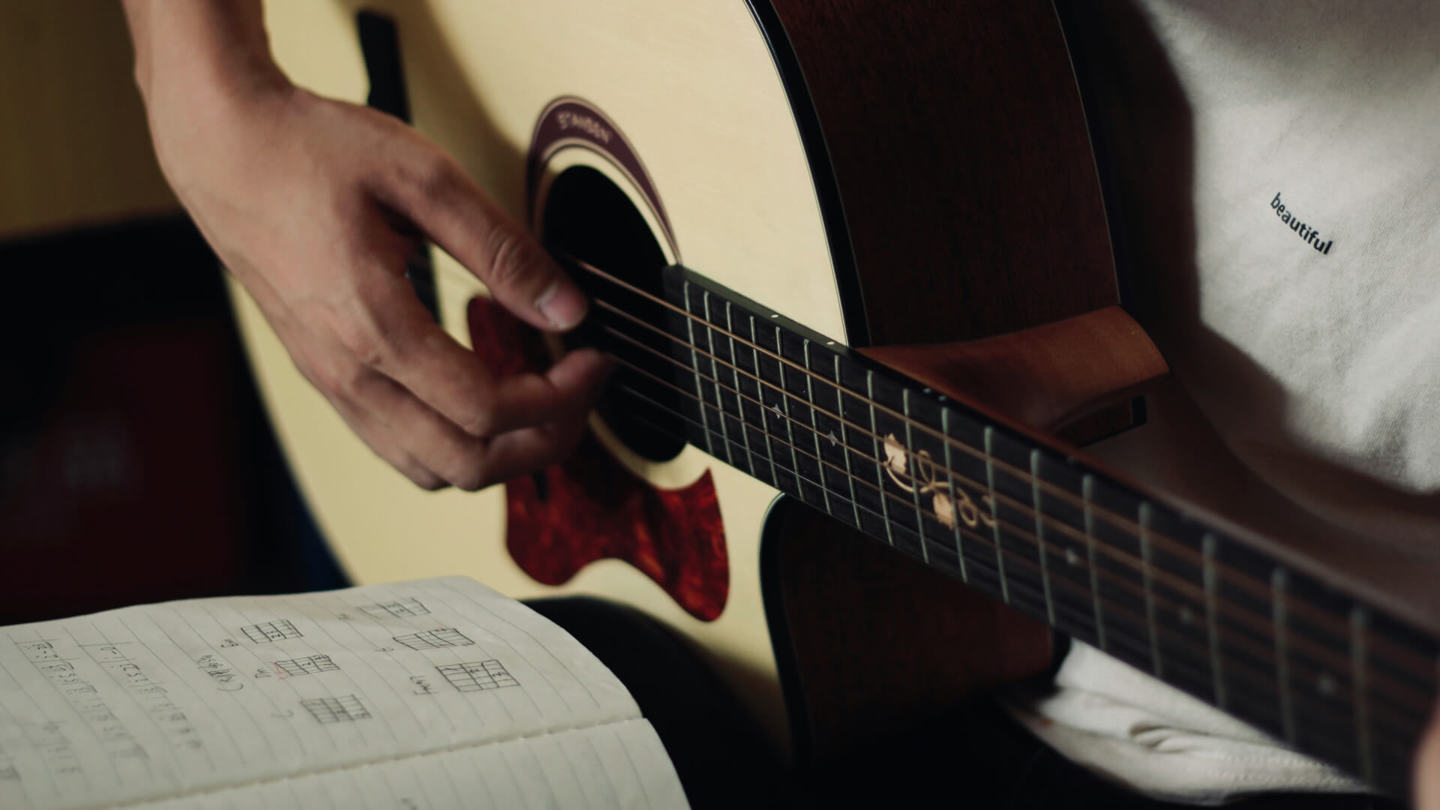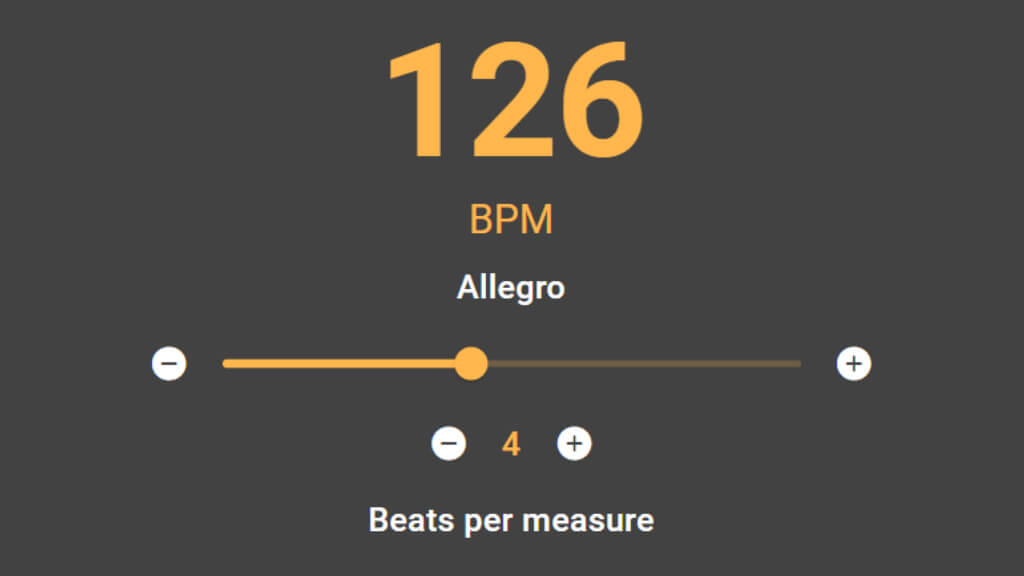When we see a virtuoso guitarist on stage, it feels like they were born with the instrument in their hands. Their fingers glide across the strings as if they instinctively know where to go. We listen and think: “Now that’s talent!”. But behind the effortless performance lie years of practice, repetition, and discipline.
So, what plays a bigger role in learning music: natural talent or hard work? It’s a question that troubles many — especially those just starting out or facing their first obstacles. Some grasp things quickly but lose motivation. Others progress slowly yet steadily. In the long run, who will go further?
In this article, we’ll explore what “talent” really means, how discipline functions in the learning process, and why it’s the combination of both that leads to true musical growth. This is especially relevant for those interested in fingerstyle guitar — a genre that values not just beautiful tone but also technical precision, emotional depth, and a profound understanding of the instrument.
What Is Talent, Really
“Talent” is often used like a magic word to explain success — some people “have an ear”, others are “naturally musical”. But in reality, talent isn’t sorcery. It’s a combination of traits a person brings into music: musical ear, sense of rhythm, fine motor skills, memory, emotional sensitivity. These traits can certainly make the start easier, but they don’t guarantee mastery. A natural inclination is not the same as actual results.
What’s more — most of these skills can be developed:
- Ear training — through singing and active listening.
- Rhythm — using a metronome and mindful playing.
- Motor skills — with consistent technical exercises.
Modern science supports this: the brain adapts to learning, and many so-called “innate abilities” are often the result of early, structured exposure. Those labeled “gifted” frequently just started earlier and practiced more systematically.
Talent also has a downside. Quick success can lead to overconfidence and the illusion that there’s no need to keep learning. When progress slows down, these learners often lose motivation. But those who built their skills through consistent effort tend to push through and adapt.
And this brings us to the next and arguably more reliable ingredient in musical development: discipline.

Photo by Suiyue Ruge on Unsplash
Discipline: The Foundation of Real Progress
If talent is the starting point, then discipline is the engine. It turns occasional success into steady growth, and fleeting inspiration into tangible results. Without it, it’s hard to maintain momentum, overcome plateaus, and build a structured practice routine.
In music, discipline doesn’t mean strictness — it means the ability to practice regularly and with intention. That includes:
- playing every day, even just 15-30 minutes,
- focusing on details and understanding your goals,
- practicing even when you’re not in the mood,
- being flexible and open to changing your approach when needed.
Discipline is especially vital in fingerstyle, where the guitarist needs precision, hand independence, and expressiveness. To achieve clean and smooth playing, it’s important to:
- break down arrangements into layers (bass, melody, accompaniment),
- refine every movement,
- learn to play slowly and mindfully.
These skills don’t appear overnight — they come from hundreds of hours of focused practice. And it’s discipline that makes that possible.
Many legendary guitarists are known not just for their talent but for their massive commitment to practice. Eric Clapton practiced up to 10 hours a day in his youth. Tommy Emmanuel performed since childhood and kept learning throughout his career. Kurt Cobain admitted to repeating the same phrases for hours.
Discipline doesn’t compete with talent — it reveals it. Even modest natural ability, when combined with steady effort, can lead to outstanding results. But without practice, even the brightest talent fades over time.
Why Neither Talent Nor Discipline Work Without Motivation
If talent is potential and discipline is the process, then motivation is the fuel. It’s what keeps you coming back to your instrument, seeking new ideas, overcoming challenges, and continuing even when progress feels slow. But unlike talent or routine, motivation is fragile — it needs constant care.
Many guitarists — especially beginners — go through the same emotional cycle:
- at first, everything feels easy and exciting,
- then progress slows,
- comparisons and self-doubt creep in,
- and music gradually slips out of the daily routine.
At these points, it may feel like you “lack talent”, but often what’s really missing is emotional resilience and the ability to stay curious. What helps isn’t harsh self-discipline, but a kind and flexible attitude — the ability to avoid burnout and keep going.
Things that can help maintain motivation:
- breaking big goals into small, achievable steps,
- mixing hard exercises with favorite melodies,
- tracking your progress (videos, journals, notes),
- having pressure-free days just for fun,
- connecting with fellow musicians.
Most importantly, find your personal source of inspiration — whether it’s a musical hero, the dream of performing, the desire to write music, or simply the joy of self-growth. When you know why you’re playing, practice becomes part of your story, not a chore.
Without meaning, there’s no momentum. Even the best practice routine loses power if it lacks purpose. But a motivated player can go much further, no matter their starting point.
Here’s the real formula for musical growth: (Talent + Discipline) × Motivation = Progress. Each element is important, but it’s motivation that breathes life into your effort. Without it, the result tends toward zero.
How the Combination of Talent and Discipline Works in Practice
In reality, it’s rare to find “pure” cases — raw talent with no effort, or strict discipline with no natural ability. Most musicians combine different traits, and it’s this unique mix that shapes their path. Let’s look at some typical scenarios:
1. Strong Talent, Weak Discipline
This person picks things up quickly, improvises with ease, and makes fast initial progress. But over time:
- technical gaps begin to show,
- it becomes harder to deal with challenges,
- motivation drops at the first signs of struggle.
Without a structured approach, even a gifted student can plateau.
2. Strong Discipline, Modest Talent
Progress is slow at first: coordination is difficult, ear training is challenging, musical form feels confusing. But gradually:
- technique becomes more confident,
- musical thinking develops,
- independence in learning emerges.
This path takes patience, but it builds a solid foundation and steady progress.
3. Moderate Talent + Consistent Discipline
This is the most reliable combination. The musician may not stand out right away, but they:
- correct mistakes consistently,
- trust their practice routine,
- grow without extreme highs and lows.
This approach is especially valuable in fingerstyle, where depth and control truly matter.
4. High Talent + High Discipline
A rare but powerful mix. It often leads to exceptional results. Still, there are potential risks:
- burnout,
- unrealistic expectations,
- emotional stress and pressure.
Even the most capable musicians need self-awareness and self-care.
Whichever path feels closest to your own, remember this: discipline is within everyone’s reach. And when paired with motivation and patience, the journey through music becomes truly achievable — no matter where you start.

Photo by Axi Aimee on Unsplash
Which Path to Choose: Practical Takeaways for Guitarists
If you want to grow as a musician — especially in such a demanding and expressive style as fingerstyle — the question “what matters more: talent or discipline?” loses its edge. The key is not to choose between them, but to work with what you already have and develop the rest.
Here are a few guiding thoughts:
- Start with yourself — everyone begins at a different point. Some grew up singing, others are just learning to hear harmony. Don’t compare yourself to others — compare yourself to who you were yesterday.
- Set clear goals — one chord, a smooth transition, eight clean bars: that is progress. Small steps build confidence.
- Respect the routine — regular practice creates technique, stability, and clarity, even when inspiration is low.
- Keep your interest alive — switch up your repertoire, play what you love, try composing. It’s not about the “perfect” program — it’s about what moves you.
- Don’t sell yourself short — many believe they’re “not capable”, but it’s persistence — not natural gifts — that shapes the outcome. Music is about patience.
Fingerstyle guitar especially rewards attention to detail, structure, and mood. These qualities aren’t reserved for the chosen few — they’re available to anyone who keeps moving forward step by step. Your choice to continue already means more than your starting point ever could.
Conclusion
The question “what matters more: talent or discipline?” fades when you stop treating musical growth as a competition and start seeing it as a journey — unique, dynamic, and personal. Some begin fast and easy, others go slow but deep. Each path has its own tempo, its own story.
If this topic resonated with you, we also recommend reading “Why So Many People Quit Learning Music And How to Avoid It” and “Fingerstyle Guitar: Key Benefits and Common Challenges”. These articles will help you see learning from a broader perspective and inspire you — especially if the road feels tough.
And if you’re still wondering — do I have what it takes, is it too late to start, is it worth continuing — let this article be your reminder: music is available to anyone who takes the next step. It doesn’t matter where you began. What matters is what you choose to do today. The guitar is already waiting — not as a duty, but as an opportunity. A chance to find your voice, to express yourself, to feel inspired. Don’t stop. Even one modest step is already movement.





![[Spider-Man] Hero — Nickelback (Fingerstyle Guitar + Vocal Cover)](https://dmitrypimonov.com/api/files/2f5fdfaf-b3e3-4697-8990-512932d05088/content/1920/1080/medium.jpg)








